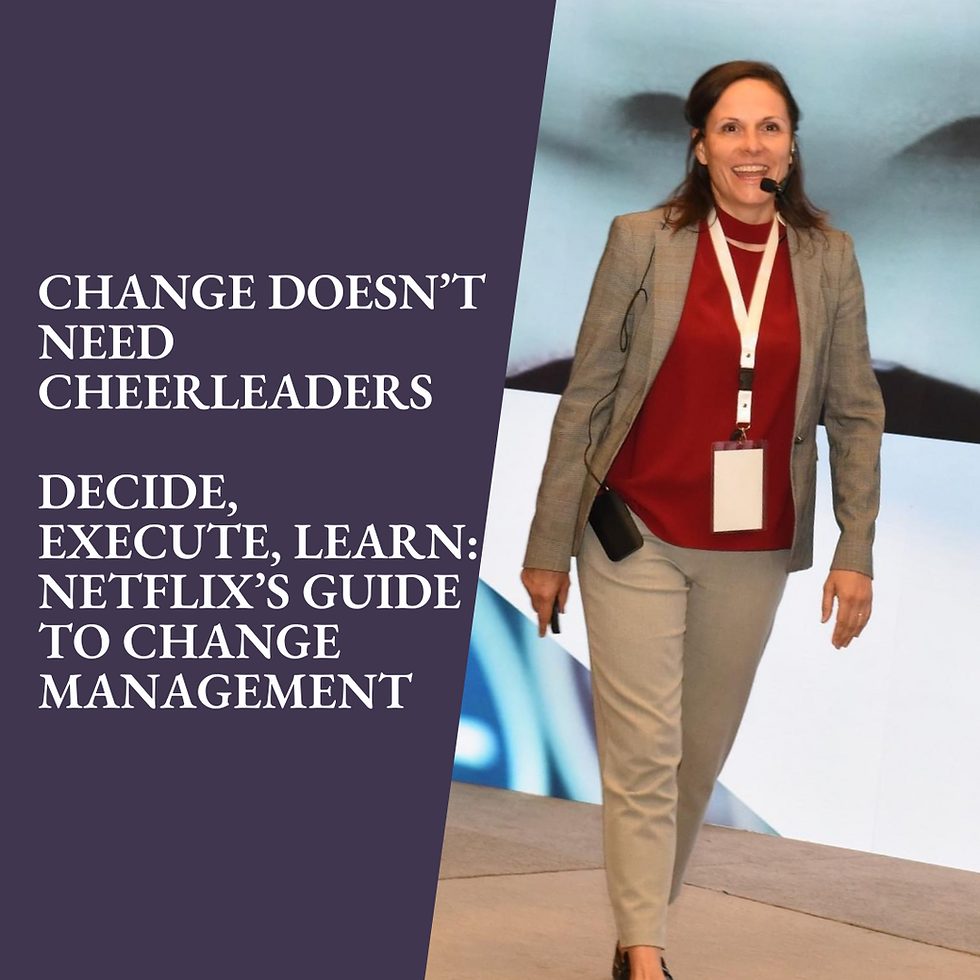Gen Z & Wellbeing Part II - Their Characteristics
- Szilvia Olah

- Jul 31, 2023
- 3 min read
Yesterday we talked about the context of Gen Z, and today it is about their characteristics. Understanding this will help you manage and develop them and redesign people management processes that align with what we need today.
1, Gen Z is not a go-along-to-get-along generation. If they have something to say, they will say it. This can only benefit us because older generations learned to keep quiet therefore, we have a lot of dead bodies in those closets at work. Let Gen Z address those, and don't be shocked when they do. Ask them what policies and procedures make no more sense, and listen. They will quickly tell you that your precious doughnut Friday only gives them indigestion instead of engagement. Don't take it personally, instead, adapt.
2, We hear it over and over again! Gen Z is not loyal. No, you have the wrong understanding of loyalty. Loyalty has never meant that people dedicate and sacrifice their life, time, family etc., for their job. It never meant a specific time period employees have to spend at the same employer to be considered loyal.
Loyalty means "Strong support" and Output, so let's ask ourselves, "What do we want Gen Z to support us with, and what does their output look like?" Make sure they know how they can support you while with you, and you will see how loyal they are.
3, Individual expression means attention. Gen Z wants you to notice them for their talent and what they bring to the table. They want you to recognise & acknowledge how different they are from the rest and reward them accordingly. Whilst the older generation would be embarrassed by being singled out for praise amongst the team, Gen Z needs that, and they don't care how that makes the others feel. Older generations were taught they needed to get their promotion by expressing their desire. Gen Z wants you to notice their potential and approach them with options on how they can progress further. Don't take it as them being entitled. It is not about that. It is about you showing that you pay attention to them.
4, Independent & efficient. Gen Zs don't enter the workforce with a clear plan of how long they will stay with you. They can join you today with the greatest enthusiasm and hand in their resignation a month later. Don't be surprised. They are committed to themselves, their needs, and their wellbeing, not to your retention KPIs. And you cannot really blame them for this, can you?
The only way to offset this is by getting the best out of them while they are with you. Gen Z loves efficiency and knowing what they need to deliver. So be clear on why you hired them and what you want from them. Get them to deliver results instead of insisting on them staying.
5, Transactional. Gen Z is not in the workforce for love and the team. They are there to earn money that supports their life outside of work. Don't try to change it by shoving down the old narrative of "we are a family, and we love our job", etc. They want to do a good job and work hard, but they have redefined hard work.
For them, hard work doesn't mean:
- Free overtime
- They burn themselves out
- Working during their day off
- A complete dedication to their job
- Quietly putting up with everything
- Giving up their private life for work duties
- They prioritise a presentation while their child is in the hospital (yes, I have seen that from Gen X, and I was mortified)
For Gen Z, hard work means delivering the targets and the performance the company has hired them for within contracted working hours.
They will give you what you pay them for, which is a fair deal. No more freebies! This is why you better know what you expect of them because they will not hang around doing nothing.
What are the policies and organisational practices you need to rethink to help the younger generations build their ideal workplaces based on their characteristics?
Let's talk about that in part III.

.png)



Comments